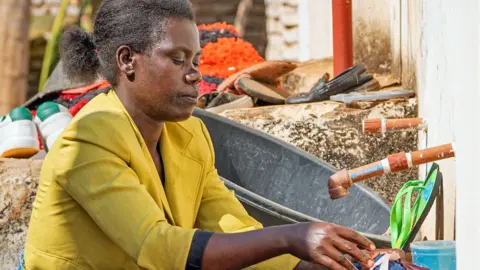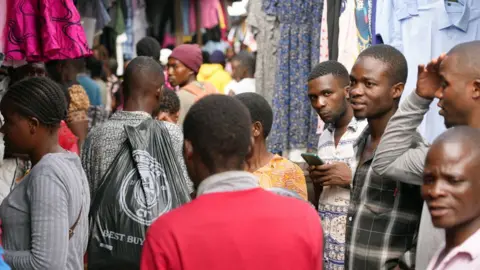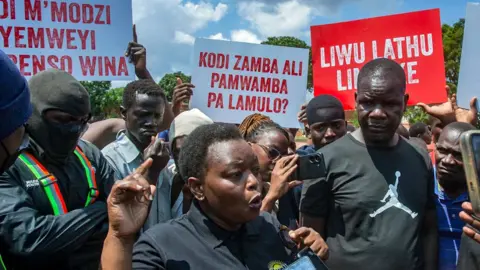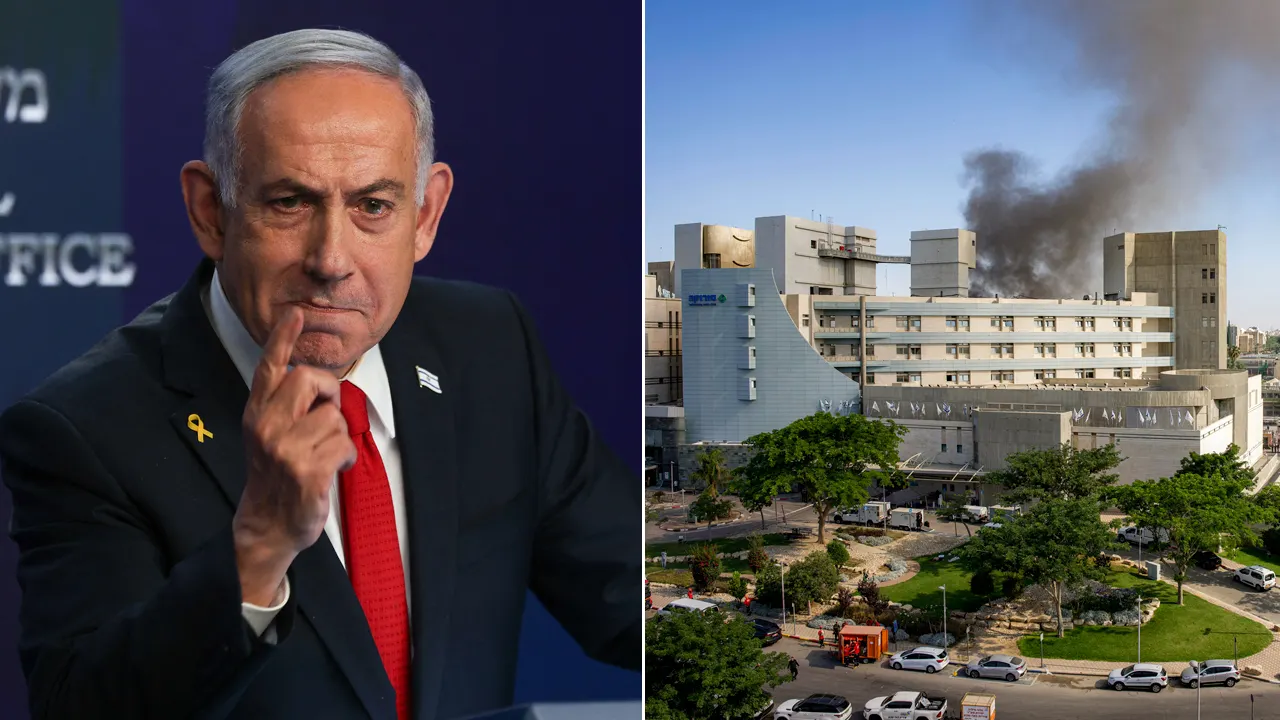BBC News, London & Lilongve
 Jack McBrams
Jack McBramsSuzana Kathumba, Malawi’s homeman, spends every day, thinking about ways she can economize to earn a salary of 80,000 clutches ($ 46; £ 34) a monthstretch to support his family.
While it made it harder with a damp cloth from the water bucket in the living room and starts with wiping tables and chairs, it considers its latest option to save money.
“I told my youngest children not to become too dirty when they play so we can save on soap,” said the 43-year-old for the BBC.
“But it’s hard because children are children, they want to play.”
In the last few months, Mrs. Kathumba, a divorced mother of four working in the capital, Lilongve, is struggling to survive at his salary for aligning the price of goods in the market.
With a small financial support of her ex-husband, she is the only household order. Most of her money returns her four children living in her hometown of Kasung, about 130 km northwest of capital. The two youngest children are still at school, and the two older are unemployed.
In May, the annual inflation rate in Malawi was 27.7% – One of the highest in Africa – a decline of 29.2% in April.
“What is surprising that salaries remain the same, but the price of goods continues every day,” said Mrs. Kathumba.
“The money ends before it even comes. We live a very difficult life.”

Recent Ernst and Youth Report He said Malawi was one of the few countries of the world that he called the “hyperinflant economy” – together with Burundi, Sierra Leone, Sudan, Venezuela and Zimbabwe. This is when there is cumulative inflation for three years of about 100% or more.
The accounting firm said that in accordance with the World Cup, Malawi had a three-year cumulative inflation rate of 116% since December 2024. And three-year cumulative inflation rates of 102% for 2025 and 66% for 2026. Year.
Data from the World Bank It also shows that the country is one of the poorest in the world. It estimates that 70% of the South African Nation’s population lives at less than $ 2.15 a day.
The current economy crisis has left many citizens, such as Mrs. Kathumba, without any savings.
“I would lie if I say that in peace I save some money at the end of the month. I absolutely not left nothing,” she said.
“I pay 50,000 to [$29] in the school fees of each term. Then you have to buy exercise books, food, soap – all from the same small salary. Sugar [1kg] is now 4,500 catchers [$3]. “
Economists have invested current problems in Malawi partially on the lack of foreign money – known as “forex” – in banners.
Malawi often struggled with forex while the earth imports much more than exports.
“We do not export high-value products”, Dr. Bertha Bangara Chikadza, an older lecturer in Macroeconomics at the University of Malawi and the President of the Malawi’s Economic Association, he said for the BBC.
“We export products such as corn, soybeans and sugar, but imports expensive products such as garbage, medicine and furniture, so we need a huge amount of folerity for it,” she said.
Companies who want to import goods say that when they apply for forex banks – especially American dollars – they often refuse because there is no available.
It has some to look for American dollars on the black market, where the course is greater than the official rate of 1,750 catchers for $ 1.
Merchants can pay between 4,000 and 5,000 catchers for $ 1 – which has an incentive for consumers.
The owners of the company, such as Mohammed Hanifa Vaka, who owns the store in the capital, says he lost many customers from the price setup.
“The sale fell drastically. We had to make excess,” he told BBC.
Although it would usually introduce items for your store, such as office supplies, pencils and notes, a lack of foreign currency means that it now tries to access the goods locally.
“I can’t remember when our banks gave us forex,” he said.
Desperate for changes, informal traders took over the streets to protest in February, hundreds blocked the entrance to Malavean parliament.
“We are really affected, we should get a profit from our companies,” said BBC Steve Magubbo, President Lilongwe’s whitch.
“But the way things are, we fail. Malawiys fail to buy our goods.”
Earlier this year, it has been announced that a $ 175 million loan agreement has been temporarily suspended. The four-year loan was approved in November 2023, 35 million dollars have been paid.
“According to the IMF policy, if the reviews do not complete during the 18-month period, the program automatically expires, and no preview is complete,” Malawi Mission Head of Missions, He told the BBC.
Mr. Tyson added that “fiscal discipline” was “hard to be difficult to maintain in the current environment due to elevated consumption pressure”.
 AFP / Getty Images
AFP / Getty ImagesHowever, Malavi’s Minister of Finance Simplex Chithiola Banda said the decision of the government to suspend the loan because there was disagreements about terms.
“When you are told you need to build reserves, but at the same time the country is dry because you don’t have fuel – decide to get fuel [rather] For construction of reserves, “Banda told BBC World Business Reports last month.
“We were told to stay in the program, you need to adjust the fuel prices, but this could negatively affect the prices of basic goods.”
With Malawi’s national elections scheduled for September, the government says it takes more steps to bring prices.
Trading Minister Vitumbiko Mumba admitted that forex must be rational, but it says that registered companies can be submitted for basic banks through a backup bank or the Ministry of Finance. But he also blames the retailers of pricing.
“We set the economic account of sabotage and there will be an essential account for goods and services that will regulate it,” he told BBC.
Meanwhile, the main opposition laid guilt for inflation on the legs of those in power.
Regardless of the cause of inflatable prices, economy is likely to be a huge problem in the campaign.
Malawians hope that their daily battles will be alleviated by government plans – and everyone wants a solution that brings permanent stability of economics.
“We depend on the government’s government,” Mrs. Kathumba said.
“I hope politicians remember less privileged Malawians when making their decisions.”
Additional reporting Jack McBrams in Lilongve.
You can also be interested in:
 Getty Images / BBC
Getty Images / BBC





